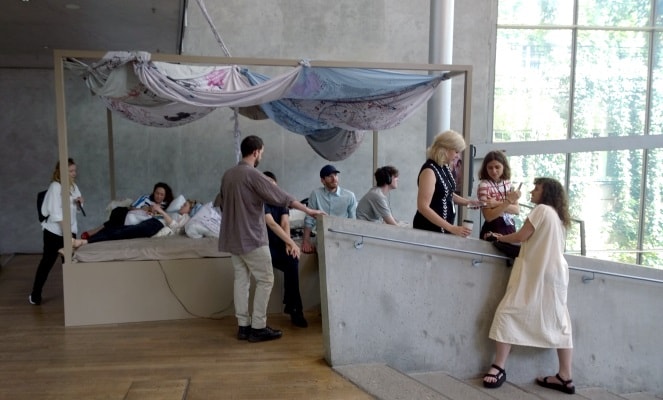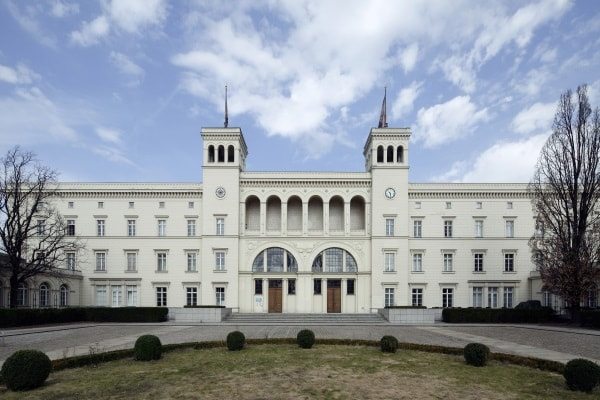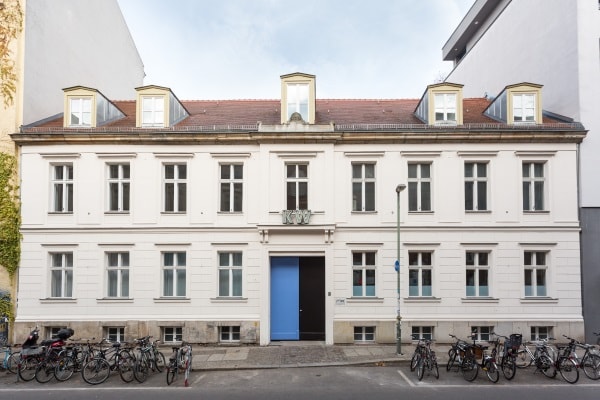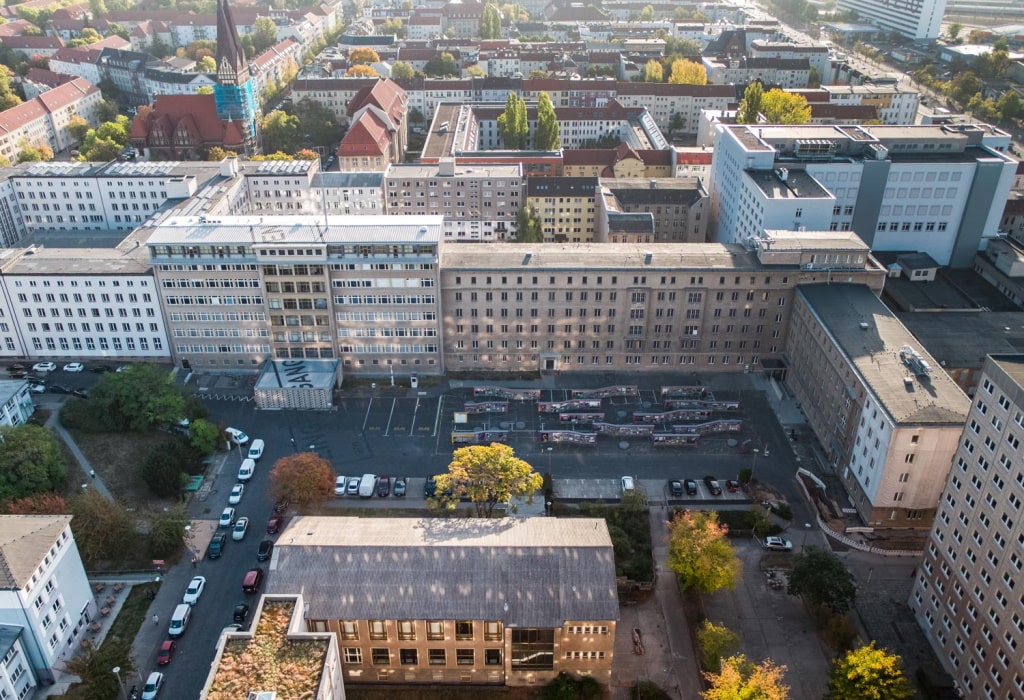With its exhibition sites, the 12th Berlin Biennial (11.06.-18.09.2022) maps historical ruptures as well as political and social transformation processes that began in Berlin and have an impact far beyond the city. Against this background, the contributions to the 12th Berlin Biennale formulate decolonial strategies and practices for the present.
Image above: Stasi-Zentrale, Campus für Demokratie, Campus 04, © Bundesarchiv
Akademie der Künste, Hanseatenweg and Pariser Platz
The Akademie der Künste, Berlin, is an international community of artists with six sections: visual arts, architecture, music, literature, performing arts, and film and media arts. Founded in 1696, the Akademie der Künste was located on Pariser Platz for over two centuries. The building was largely destroyed during the Second World War. Subsequently, separate academies were established in East and West, which were merged after the fall of the Wall. The house on Hanseatenweg, built in West Berlin in 1960, remained as a location for exhibitions and discourse programmes. In 2005, the Akademie der Künste also moved into its new glass building on Pariser Platz. Already in 1998, the then still dilapidated Academy building was one of the exhibition venues of the 1st Berlin Biennale. After further exhibitions at one of the locations, the current edition of the Berlin Biennale is now taking place in both buildings for the first time.
Hanseatenweg 10, 10557 Berlin
Pariser Platz 4, 10117 Berlin

Dekoloniale Erinnerungskultur in der Stadt
The pilot project Dekoloniale Erinnerungskultur in der Stadt (Decolonial Remembrance Culture in the City) uses Berlin as an example to test how a metropolis, its space, its institutions and its society can be examined for (post-)colonial effects. The project space is located at Wilhelmstraße 92 between the former sites of the Reich Chancellery and the Foreign Office. This is where the envoys of the European powers, the USA and the Ottoman Empire met in 1884/85 at the invitation of the German Empire and the Republic of France for the Berlin Conference and agreed on the rules for the colonial division and exploitation of the African continent. Decolonial Remembrance Culture in the City is a joint project of Berlin Postkolonial e. V., Each One Teach One (EOTO) e. V., Initiative Schwarze Menschen in Deutschland (ISD-Bund) e. V. and the Stiftung Stadtmuseum Berlin.
Wilhelmstraße 92, 10117 Berlin
Hamburger Bahnhof – Museum für Gegenwart – Berlin
Hamburger Bahnhof was established in the mid-19th century as the terminus for the railway line between Hamburg and Berlin and was converted into a museum of transport and technology in the early 20th century. During the division of Germany, it lay unused for decades in no man’s land between West and East Berlin. Since its opening in 1996, the building has been part of the National Gallery. Today, the Hamburger Bahnhof – Museum für Gegenwart – Berlin is one of the most important museums for contemporary art in the world. Works from the collection of the Nationalgalerie and other important international collections are shown parallel to the special exhibitions in an area of around 10,000 square metres.
Invalidenstraße 50-51, 10557 Berlin

KW Institute for Contemporary Art
KW Institute for Contemporary Art addresses central questions of the present through the production, presentation and mediation of contemporary art. Founded more than 30 years ago in a dilapidated factory building on Auguststraße during the turbulent post-reunification period, KW has established itself as a vibrant venue for progressive artistic practices. This is also where the Berlin Biennale for Contemporary Art was founded and hosted for the first time in 1998. Since then, KW has been a fixture as the exhibition venue of the Berlin Biennale. For each edition, it presents artistic works and programmes here and at other venues that add new perspectives to the discourses conducted in the city.

Stasi-Zentrale. Campus für Demokratie
With around 50 buildings and thousands of offices, the headquarters of the Ministry for State Security in Berlin-Lichtenberg was a huge complex in GDR times, in which up to 7,000 full-time Stasi employees worked. In order to secure the autocracy of the Socialist Unity Party of Germany (SED), they organised the surveillance and repression of the population as well as the GDR’s foreign espionage from here. In January 1990, citizens entered the sealed-off area and helped to stop the work of the Stasi and the destruction of the files. Today, the former bastion of the secret police is a place of education about dictatorship and resistance, a place of learning for democracy
Ruschestraße 103, 10365 Berlin

The 12th Berlin Biennale will take place from 11 June to 18 September 2022.





